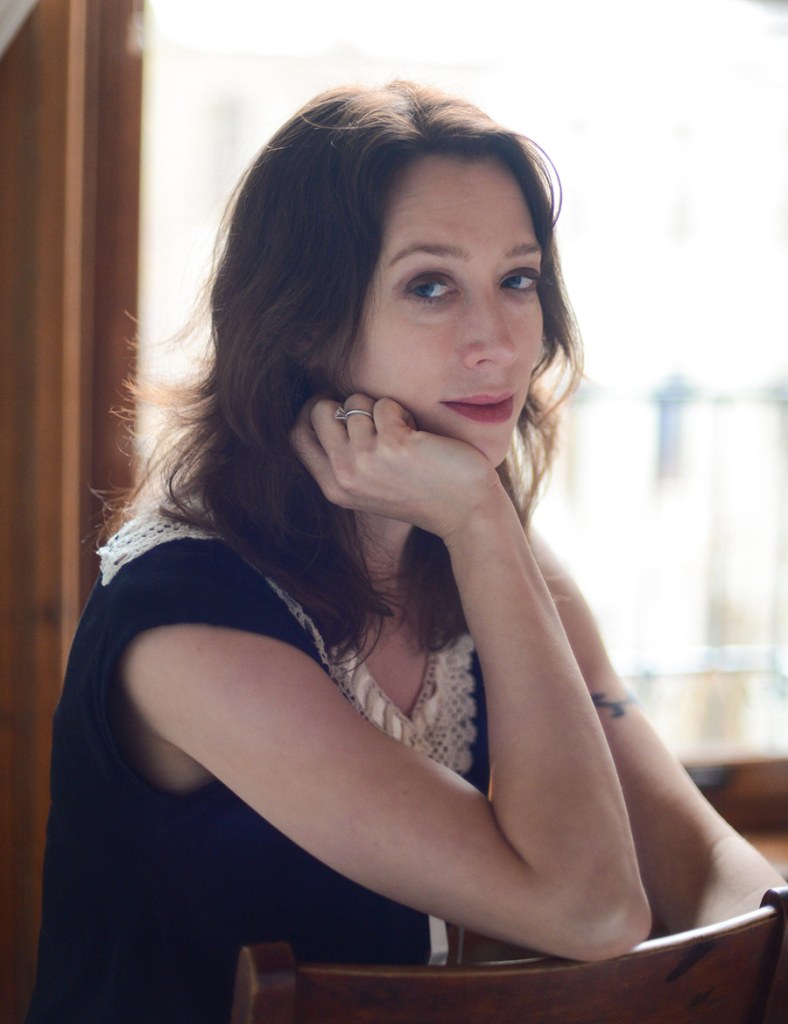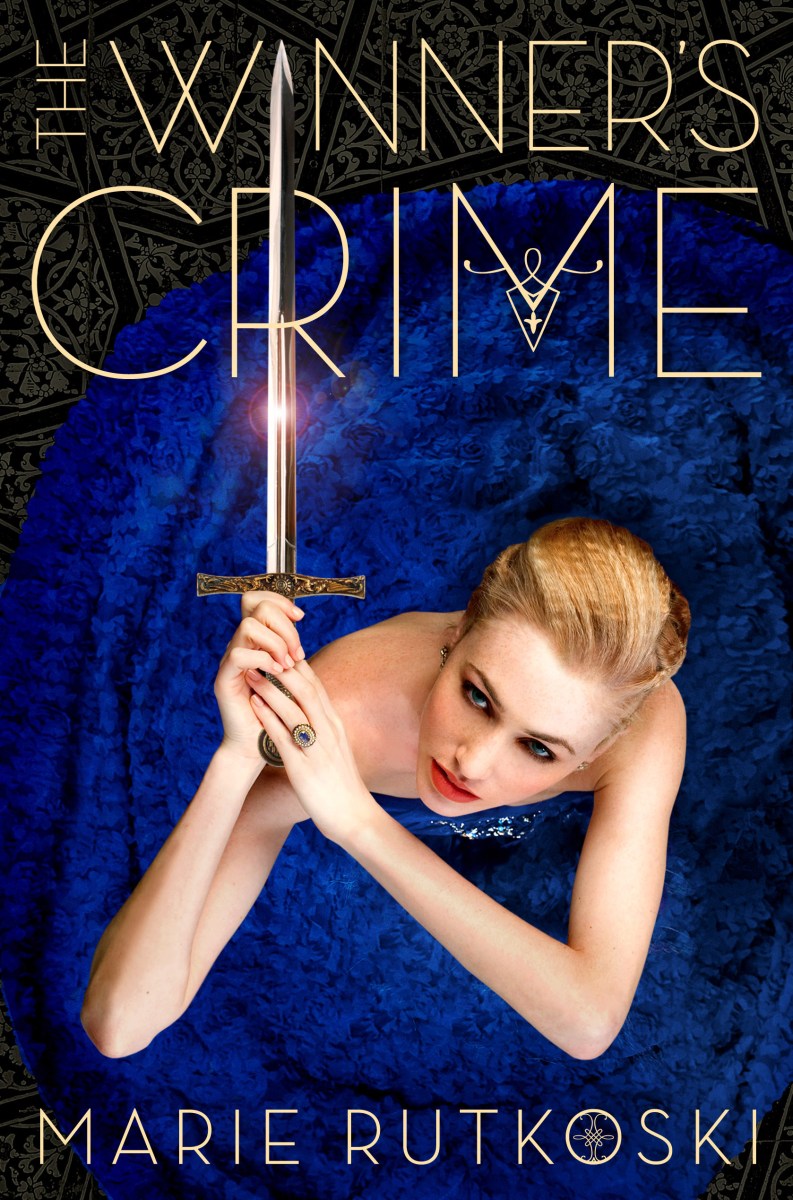Marie Rutkoski’s The Winner‘s Curse made a huge splash in YA lit when it arrived, and people loved it for Kestral, its strong female lead, and its intricate portrayal of a world embroiled in imperialist politics. The sequel, The Winner’s Crime, just released on Tuesday, and I thought it was a great follow-up – and, in fact, a great improvement – on the first. I got the chance to speak with Rutkoski about the new book and her plans for Kestral’s future.
Sam Maggs (TMS): While The Winner’s Curse focused largely on the budding romance between Kestrel and Arin against the backdrop of a slave rebellion, in The Winner’s Crime war and international politics take center stage. Can you talk a little bit about what it was like to build this complex world, and how Kestrel gets caught up in it?
Marie Rutkoski: When I set out to write The Winner’s Curse, I wanted to portray the damage of asymmetrical power.
Here’s what I mean. Kestrel and Arin are intelligent, passionate, and brave people. They are, in essence, equals. But in the context of their world they are not; one is in an extreme position of power over the other. She owns him. Then, when the slave rebellion happens, she becomes his prisoner. And while both the purchase of Arin and the taking of Kestrel prisoner were spurred by good intentions, the imbalance of power between them taints their relationship, and questions whether romance—or any good relationship—is even possible.
The Winner’s Crime takes place at the heart of the empire’s power, at its court, where Kestrel has engaged herself to the emperor’s son in exchange for Arin’s freedom. In the first book, we see that she’s clever, very good at strategy; but I wanted to situate her among people who are also very good at it, and have much more experience. At the same time, the stakes are higher, because Kestrel wants a more ethical world and is willing to take extreme risks for it. The Winner’s Crime is perhaps like seeing a talented but young gambler challenge seasoned poker players, and all the players must throw what they value most into the ante.
TMS: There’s so much court intrigue, deception, and angst in this book that that I found myself yelling at the pages on occasion in the best kind of frustration. Can you tell us about how Kestrel’s relationships with Arin, and with her new fiancé, develop?
Rutkoski: Both Kestrel and Arin suffer from a lack of trust. Kestrel recognizes that Arin can fall prey to his own emotions, and that he has an uncompromising sense of integrity. She finds herself increasingly in the position of having to lie to him for what she perceives to be his own good, because she doesn’t trust him to protect himself. And she is also perhaps used to thinking of herself as someone who knows what’s best.
Arin instinctively trusts Kestrel…yet also doesn’t trust that trust, and a lot of this has to do with insecurity, which we see much more of in The Winner’s Crime than we have before.
As for Verex, the fiancé….there’s no love triangle in this book. Verex is Kestrel’s friend. She is in many ways very alone at court, and very few people see her for who she really is. Verex can. I felt that the book needed this.

TMS: Kestrel is a complex heroine; she’s the daughter of an imperialist, but also someone who knows that his conquering has consequences. Tell us about her character growth in Crime, as she has to become her own instrument of political change.
Rutkoski: I’m interested in how we judge our responsibility for horrible things that are not directly our fault. Kestrel didn’t conquer the Herrani, didn’t enslave them. But in The Winner’s Curse her whole way of life is predicated on their servitude. So isn’t she, after all, responsible?
It’s one thing to understand this. It’s another to do something about it. In The Winner’s Curse, we see her try to do something about it but for the most part not getting it right. In what seems like the impulse to help someone she identifies with, she buys Arin at an auction to save him from a worse fate—and by doing so, participates in the very institution (slavery) that appalls her. In other moments, she tries to rectify something she finds wrong for an individual (usually, but not always, Arin). In the sequel, however, she knows that change shouldn’t happen just for individuals, but for whole cultures. Maybe this sounds too epic, but she really wants nothing less than to change her entire culture.
TMS: What is your favorite thing about Kestral as a YA heroine?
Rutkoski: Her good heart. Her bravery. Her mind. She makes mistakes, but I like the way she tries so hard to understand people and her world.
TMS: How would you fare in the court of Valoria?
Rutkoski: Fairly well. Better than in the military, for sure. I could handle court intrigue…so long as I didn’t take the risks that Kestrel does.
TMS: Is there anything else you’d like to share about the book? Maybe… some sequel hints? (Hehe.)
Rutkoski: It’s called The Winner’s Kiss. There is kissing. And war. The book is set mostly in Herran but we will see new parts of it.
The Winner’s Crime is available now at all major booksellers.
(Marie Rutkoski photo by Tobias Everke)
Are you following The Mary Sue on Twitter, Facebook, Tumblr, Pinterest, & Google +?








Published: Mar 5, 2015 07:00 pm